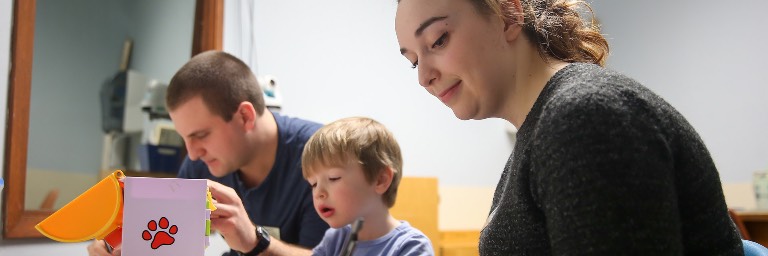Early Childhood Education Minor
Transform into an observer, learner, and independent decision-maker with an effective teaching style for children.
Help make a difference with a minor in Early Childhood Education. Learn the methods and strategies of teaching young children through real-world learning experiences.
- Program type:
- Minor
- Format:
- Online
- Est. time to complete:
- 1-2 years
- Credit hours:
- 21
Why minor in Early Childhood Education?
As you earn your Early Childhood Education minor, you'll focus on children in the context of family, culture and community. You'll explore developmentally appropriate practices, emergent curriculum, descriptive assessment, and problem-solving approaches to resolving conflict and choices for children.
UND's Early Childhood Education program is part of the College of Education & Human Development. Most classes are small, with about 12-25 students per class. All classes are capped at 25 students, meaning you'll receive individual attention.
An Early Childhood Education minor gives you the strategic skills you need, including:
- Curriculum Development
- Lesson Planning
- Strategic Planning
- Child Development
Accreditation by NCA and CAEP
Programs within the College are fully accredited by the North Central Association of Colleges and Schools (NCA) and the Council for the Accreditation of Educator Preparation (CAEP).
What majors pair well with an Early Childhood Education minor?
Combining an Early Childhood Education minor with certain majors can enrich your understanding of child development, educational practices, and social contexts. Or deepen your expertise with a bachelor’s degree in Early Childhood Education. Here are some bachelor's degrees that pair well with an Early Childhood Education minor:
- Elementary Education Degree: Prepares you for teaching across grade levels with a focus on early childhood development.
- Psychology Degree: Complements your understanding of child development and behavior, preparing you for roles in child psychology or counseling.
- Social Work Degree: Gain the knowledge and advocacy skills crucial for supporting children and families in various settings.
- Sociology Degree: Deepen your understanding of societal influences on early childhood education, informing effective teaching practices.
- Public Health Education Degree: Prepares you for roles focusing on child health outreach, early intervention programs, and community health initiatives.
